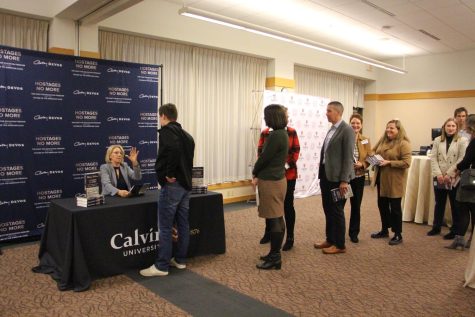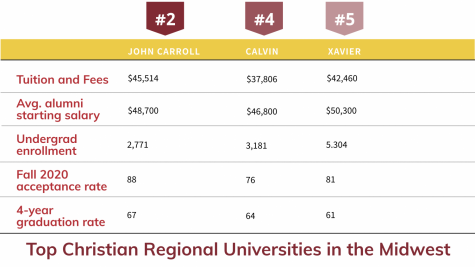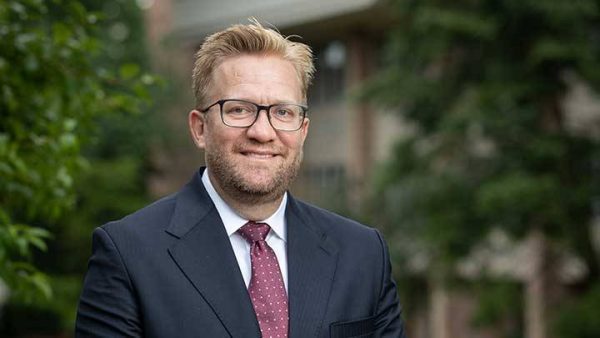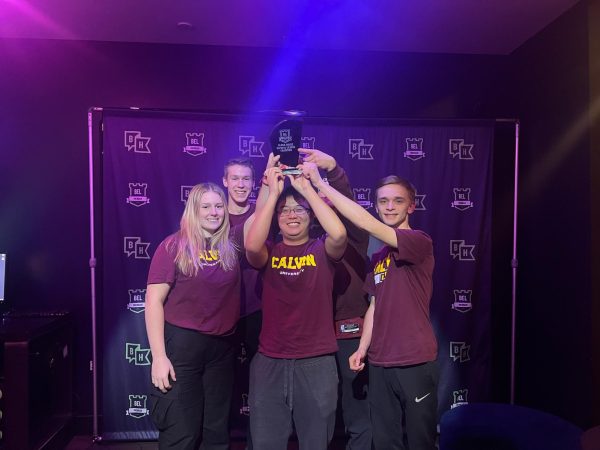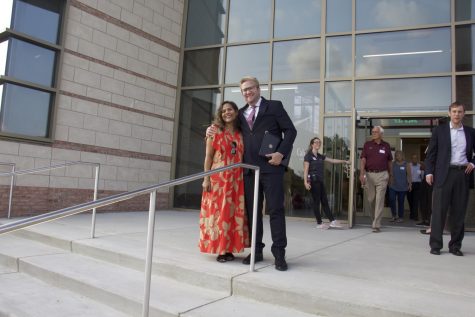Survey tracks recent changes in sexual assault rates at Calvin
As media attention focuses on the prevalence of sexual assault on college campuses, the #MeToo movement and rollbacks on Title IX, sociology and social work professor Rachel Venema is taking a look at the campus climate regarding sexual assault.
Professor Rachel Venema of the sociology and social work department invited Calvin students during the 2016–17 academic year to participate in a campus climate survey on sexual assault. Thirty-eight percent of students started the survey and 31 percent completed the survey, accumulating over a thousand responses. Venema presented the results on Monday, April 23.
Venema’s research looked at the 2016-17 academic year and defined sexual assault as involving “penetration or other sexual contact” including touching which “involves force or coercion.” Consent was defined as “affirmative consent” without “factors that inhibit the ability to consent,” such as unconsciousness.
The survey showed that seven percent of the Calvin students who responded had experienced sexual assault between Sept. 1, 2016, and Aug. 31, 2017, which is up from the 5.5 percent in an identical survey in 2014.
Venema said that this number did not match Calvin’s campus safety reports which may indicate survivors’ discomfort in reporting. She also said that it was difficult to compare this number to other schools, since surveys conducted by other schools vary in their wording and definitions.
“Seven percent is not acceptable. Zero percent is what we want to see,” said Venema.
A majority of those who experienced unwanted sexual contact were women (91 percent), heterosexual (87.6 percent) and white (84.3 percent). There were no major differences between class levels, living situations and month of occurrence. A majority (81 percent) of incidents occurred off-campus with 60.3 percent within the Grand Rapids area.
Most of the unwanted sexual contact was “forced touching of a sexual nature.” Venema said that many may not consider sexual touching as assault, but this survey did.
The survey also found that 1 in 5 respondents had another Calvin student disclose to them about an unwanted sexual experience. This indicates a need for better training on how to respond to a peer as well as a need to address how to report and what happens when you do, said Venema.
At Calvin, the Safer Spaces policy allows the survivor to decide how they want to proceed, which means reporting a case does not necessarily invoke an investigation. Safer Spaces is a resource available to all Calvin students that deals with discrimination, harassment and retaliation. Incidents that occur off-campus can be reported if there is a Calvin student involved, and a reported assault does not necessarily need to be perpetrated by a student.
Although there still seems to be confusion or reluctance about reporting, Safer Spaces coordinators have seen an increase from previous years. Venema brought up how reporting to Safer Spaces is often associated with wanting to hold a perpetrator accountable, but another benefit is that it allows the victim to receive help. A quarter of victims in the survey had not told anyone about their experience.
According to Venema, the response a victim receives when disclosing an incident to a peer is key to whether they decide to report. She emphasized that people could learn how to say things that would help, such as: “I believe you. I’m so sorry that happened. How can I help you? Do you know how to use these resources?”
Perceptions of the college’s response to sexual assault are generally positive, but perceptions of negative repercussions to reporting are also strong. About sixty percent of respondents to Venema’s survey considered it likely that an alleged offender or their associates would retaliate against the person making the report, an increase of about ten percent from 2014.
About half (56.5 percent) of the respondents report receiving training related to sexual assault, an increase from the 36.6 percent in 2014.
Reports of many forms of sexual harassment by peers are low, except for sexually harassing jokes, comments and gestures, which 19.5 percent of respondents experienced. Reports of dating violence are also low, with less than one percent claiming to be seriously threatened or physically attacked by an intimate partner.
Looking forward, Venema would like to see more exploration on elements of campus culture that perpetuate silence and to continue monitoring the campus climate and incidences of sexual violence.
If you have experienced discrimination, retaliation or harassment, Calvin’s Safer Spaces is available for you to talk to a professional in confidence and/or make a report.






